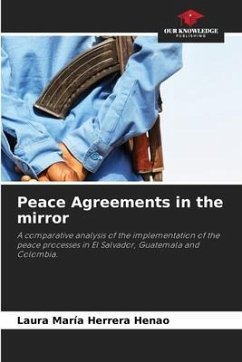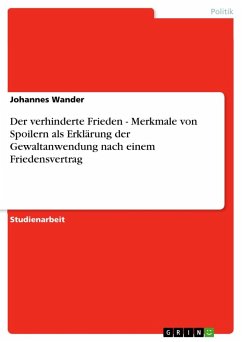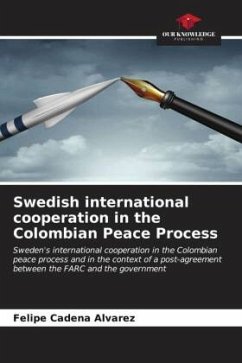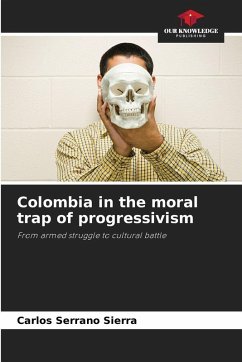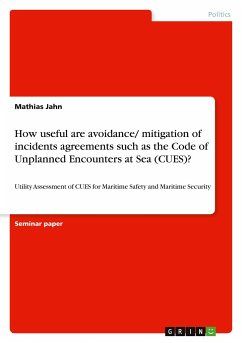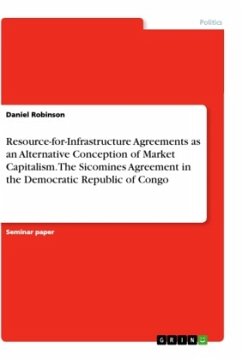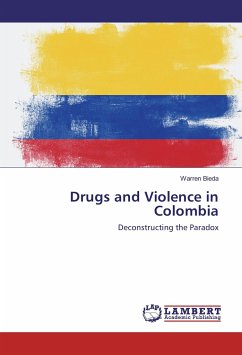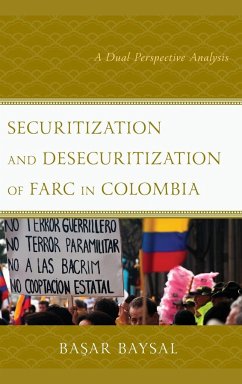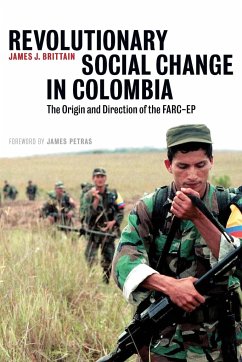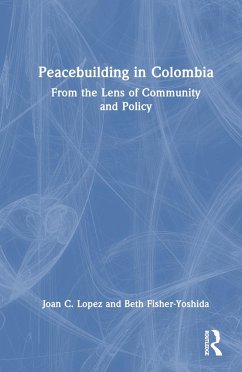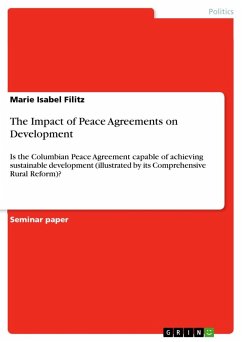
The Impact of Peace Agreements on Development
Is the Columbian Peace Agreement capable of achieving sustainable development (illustrated by its Comprehensive Rural Reform)?

PAYBACK Punkte
0 °P sammeln!
Seminar paper from the year 2020 in the subject Politics - Topic: Peace and Conflict, Security, grade: 1,0, University of Münster (Rechtswissenschaftliche Fakultät), course: Seminar: Law Development & Climate Change, language: English, abstract: For more than 50 years, Colombia has suffered a civil war that took the lives of thousands and forced millions to leave their homes. The war originated from the inequalities within the country that drove the Revolutionary Armed Forces of Colombia - People's Army (Spanish acronym FARC) to oppose the government. The FARC was formed by uprising peasants...
Seminar paper from the year 2020 in the subject Politics - Topic: Peace and Conflict, Security, grade: 1,0, University of Münster (Rechtswissenschaftliche Fakultät), course: Seminar: Law Development & Climate Change, language: English, abstract: For more than 50 years, Colombia has suffered a civil war that took the lives of thousands and forced millions to leave their homes. The war originated from the inequalities within the country that drove the Revolutionary Armed Forces of Colombia - People's Army (Spanish acronym FARC) to oppose the government. The FARC was formed by uprising peasants and members of the Colombian communist party and was hence strongly left-wing oriented. The government has always been positioned on the far right and was supported by various paramilitary groups. The war deepened existing inequalities and illegal groups gained significant power by means of corruption and drug trafficking.It was only after five decades that in 2016 an agreement could be reached between the leader of the FARC and the former president of Colombia, Juan Manuel Santos. Millions of Colombians found hope in this agreement for the end of rural deprivation due to lasting peace.But is a peace agreement capable of achieving such an outcome?Being the oldest democracy in South America, the rule of law has existed in Colombia for a long time. Paradoxically, Colombia is known for its quite resilient constitution from 1991 and its extensive legislative framework. But previous agreements, reforms and laws have not been able to end the conflict. Against this background, this paper intends to examine the relationship between law and development using the peace agreement as an example. The paper will focus on Chapter One of the Agreement which contains the Comprehensive Rural Reform (CRR) and attacks the root causes of the armed conflict. This is why it is the part of the Agreement most likely to achieve sustainable development.When speaking of sustainable development, I am referring to a "development that meets the needs of the present without compromising the ability of future generations to meet their own needs".In order to understand whether such a development can be achieved through a peace agreement, the paper is structured into four main sections. Following the introduction Colombia's historic background will be discussed to create an understanding of current issues in the country's development. Second, I am going to outline the content of the CRR and see whether it addresses the named problems. Section 3 shows how far the implementation process of the CRR has gone so far. In the final part I will analyze the implementation progress and explain causes for delays.




